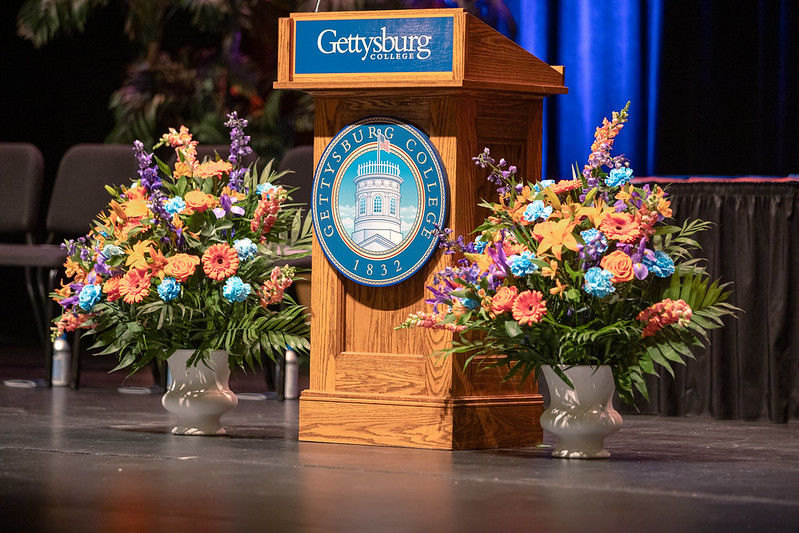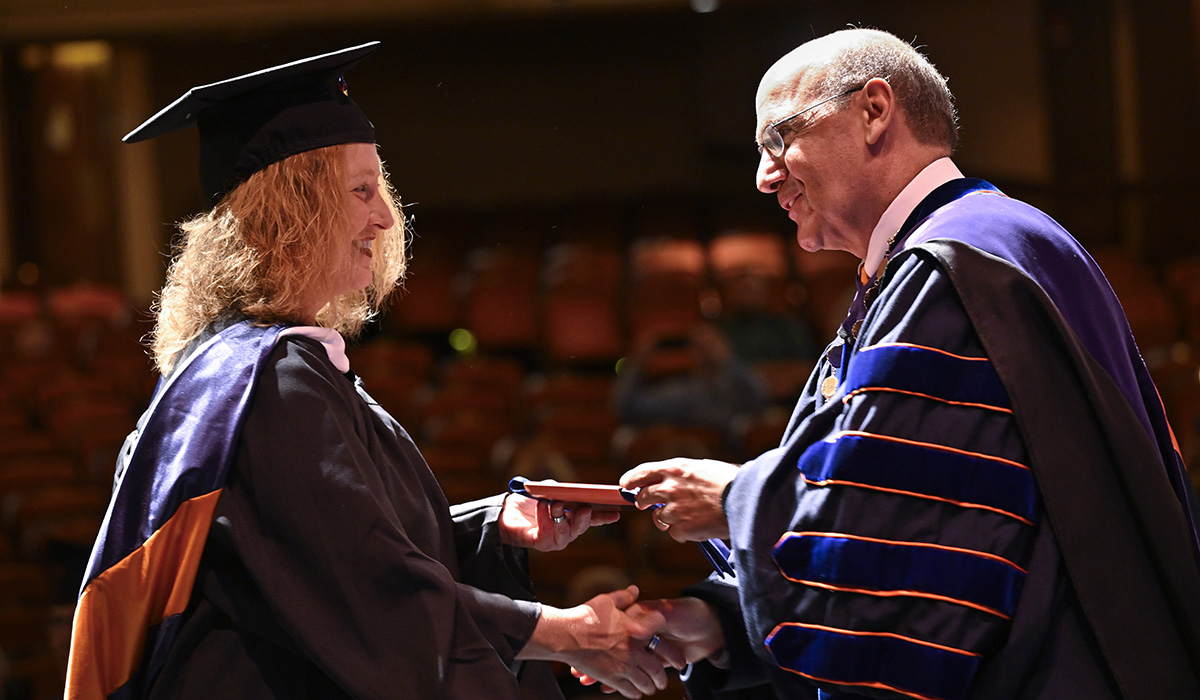
For close to two centuries, Gettysburg College has promised every student A Consequential Education. It’s an education that empowers leaders and engaged citizens to go forth from this hallowed ground and lead lives of consequence.
On Saturday, July 15, Gettysburg College celebrated the achievements of its first graduates of the College’s new Master of Arts in American History program. The Inaugural Master’s Commencement ceremony was held at Gettysburg College’s Majestic Theater, recognizing students from the winter and spring 2023 cohorts who had completed their degree requirements.
Launched in September 2022, the master’s program in American history is offered through a partnership between Gettysburg College and The Gilder Lehrman Institute of American History (GLI). Graduates of the fully online, fully accredited program include K-12 educators, district supervisors, museum professionals, and National Park Service employees affiliated with the GLI. The program provides these educators with a deeper understanding of American history, inspiring a generation of scholars to advance the “unfinished work” that President Abraham Lincoln declared in his Gettysburg Address.
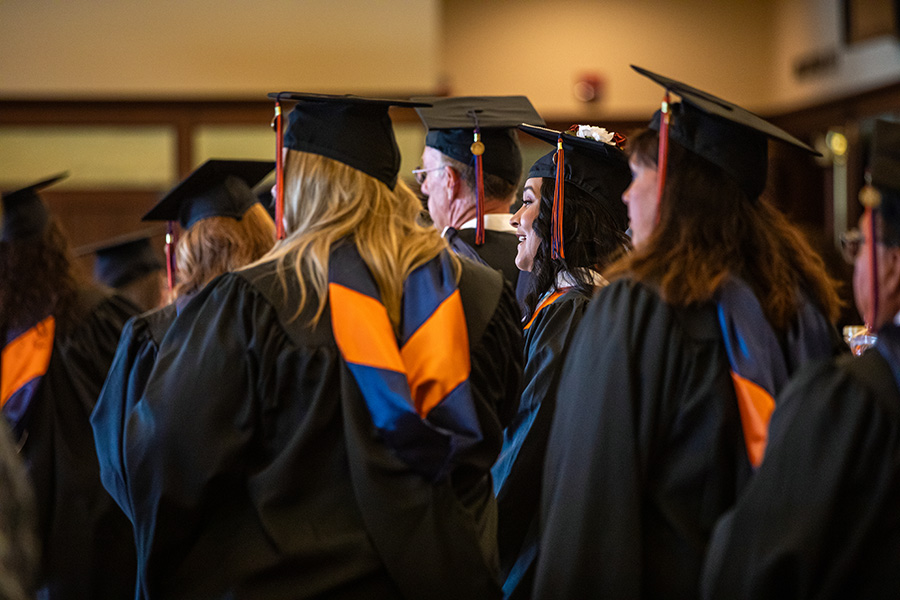
As he greeted the graduates, their families and friends, and College faculty and staff from the Majestic Theater stage, Gettysburg College President Bob Iuliano underscored the significance of Gettysburg’s place within the context of American history: “All that was sacrificed here. All that was articulated here. All that was earned here in defense of the values that we hold dear.”
In his remarks, Iuliano recounted the story of Union Army Col. Joshua Chamberlain, whose valiant actions on Little Round Top during the Battle of Gettysburg on July 2, 1863, influenced the outcome of the Battle of Gettysburg, the trajectory of the Civil War, and the future of our nation. Recognized for his leadership and courage during the battle, Chamberlain commanded the 20th Maine Infantry Regiment, positioned on the left flank of the Union line at Little Round Top.
“Understanding the strategic importance of his position, and the Union’s certain defeat if they faltered, Chamberlain and his men bravely defended against an onslaught of Confederate assaults, despite being severely outnumbered and low on ammunition. Wave after wave, they held the line,” Iuliano said.
Now more than ever, he said, our country needs leaders “who are dedicated to their profession and willing to hold the line for the institution of education in this country. … Our democracy is dependent upon an informed citizenry, and a breadth and depth of knowledge in our shared history—our authentic history—is fundamental to ensuring that our nation endures.”
“What you do as an educator matters—and how you do it matters even more. The wisdom and lessons you impart on your students hold with them the promise to change our nation and our world in immeasurable ways.”
– Gettysburg College President Bob Iuliano
Iuliano encouraged the graduates to remember that they, like Chamberlain’s troops on Little Round Top, are on the high ground. “What you do as an educator matters—and how you do it matters even more,” he said. “The wisdom and lessons you impart on your students hold with them the promise to change our nation and our world in immeasurable ways.
“Each of you made a conscious decision to pursue an advanced degree, moved by the desire to build a brighter tomorrow for your families and your students,” he continued. “You are all Gettysburgians for life, and we look forward to partnering with each of you to bring this bright future to fruition.”
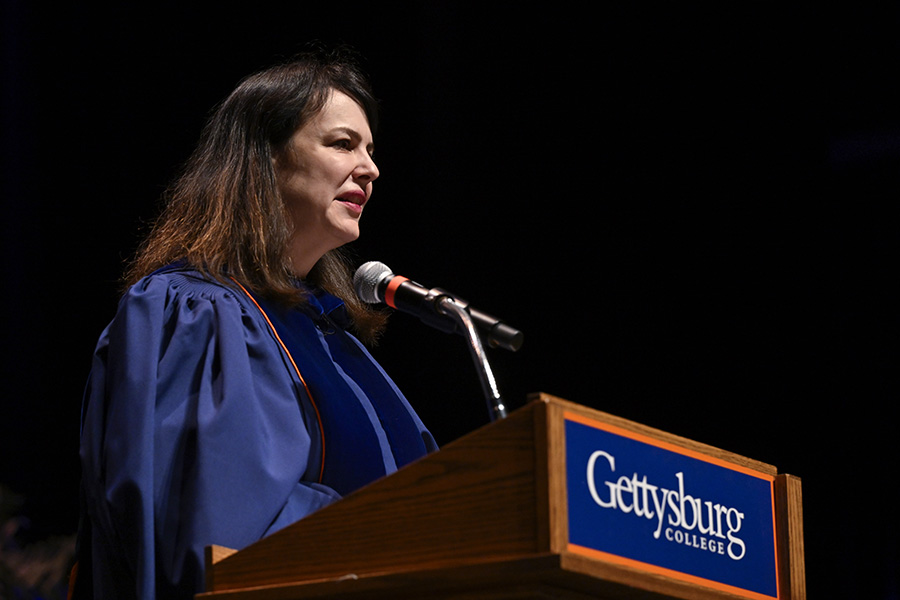
Gettysburg teaches lifelong lessons
Kathrine Mott, chief operating officer of The Gilder Lehrman Institute of American History, expressed her recognition of the graduates’ accomplishments and introduced renowned historian and Commencement speaker David W. Blight.
Blight is Sterling Professor of History, African American Studies, and American Studies, and director of The Gilder Lehrman Center for the Study of Slavery, Resistance, and Abolition at Yale University. He is one of the nation’s foremost scholars of topics related to the Civil War, Reconstruction, race and racism, and the American historical memory. His published works have garnered some of the most prestigious prizes for historical scholarship, including the Pulitzer Prize, Frederick Douglass Book Prize, Bancroft Prize, Gilder Lehrman Lincoln Prize, and multiple awards from the Organization of American Historians.
In his remarks, Blight reflected on the enduring legacy of history education, reaching back to Herodotus in ancient Greece and continuing to today. He recounted how Gettysburg served as an “annual classroom” for the 16- and 17-year-old students he introduced to Gettysburg when he taught high school history in his hometown of Flint, Michigan, during the 1970s. Together, he said, they toured Gettysburg National Military Park, held poetry readings and recitations at key spots on the battlefield, and took in the sights and sounds of a place whose beauty belied the tragedy that unfolded here.
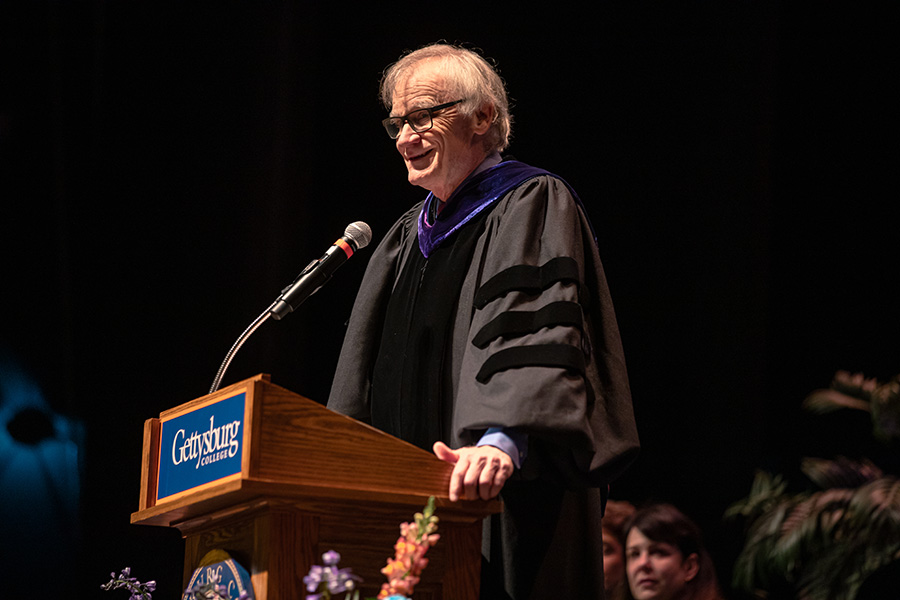
“We evoked emotions. … We taught stories with meaning and molded experiences that would last,” he said. Blight noted he continues to receive letters and emails from students who fondly remember the experiences of exploring history’s stories on hallowed ground.
“That teaching I was privileged to do here is still the most important teaching I ever did,” he said, calling to mind a communication he received from a former student that exemplifies the power of educators to positively impact their students’ lives: ‘I just wanted to get in touch to let you know that you were not forgotten.’”
Following Blight’s remarks, Provost Jamila Bookwala recognized the 76 graduates representing 26 states comprising the Master of Arts in American History degree recipients of the Class of 2023. As part of this recognition, the College awarded a posthumous degree to Paul Thompson M’23 of Rancho Cordova, California, an educator in the master’s program.
Stole of Gratitude presentation and welcome to Gettysburg’s alumni community
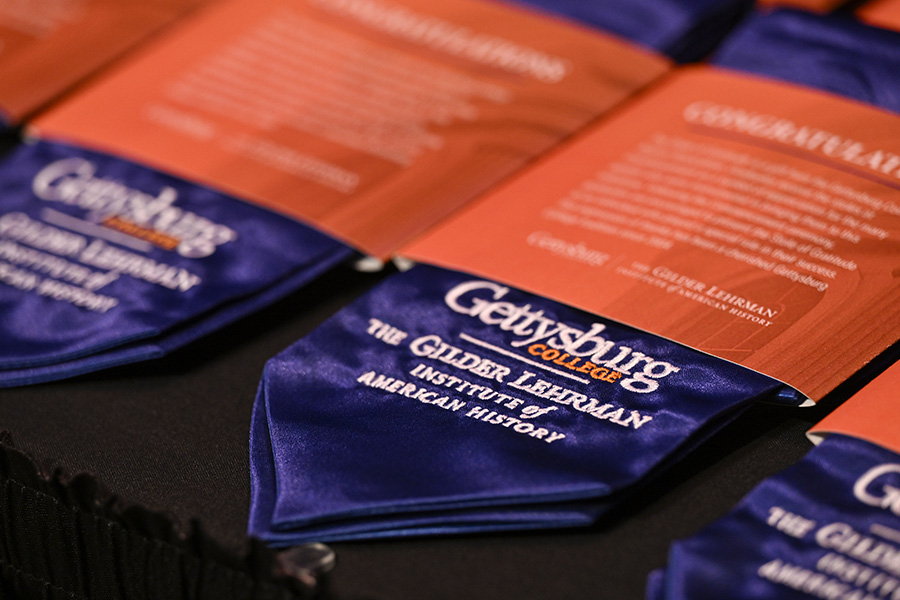
As graduates in attendance for the ceremony walked across the Majestic Theater stage, they participated in the Gettysburg College tradition of receiving a Stole of Gratitude at Commencement. The Stole of Gratitude is given to every Gettysburg graduate, a gift from the Gettysburg College Alumni Association.
Iuliano encouraged the graduates to present their Stoles of Gratitude to someone in their lives who was instrumental in their success, a token of appreciation and recognition for the encouragement they received throughout their academic journey.
Greeting the new Gettysburg graduates, Associate Vice President for College Advancement Betsy Duncan Diehl ’84, P’14 welcomed them into Gettysburg’s community of more than 32,000 alumni worldwide. She described how Gettysburg alumni’s relationship with their alma mater is personal and lifelong.
“It is personal because Gettysburg is defined by its people—people who cheer for you, who lift you up, who want to see you succeed and make a difference out in the world,” Diehl said. “As you are now Gettysburgians, you are now part of this vibrant and supportive network. Think of today as the opening act of your own Gettysburg story. Your supporting cast is all around you, ready to play a variety of roles to help you make an impact on the world and in the lives of others.”
Following the singing of the Alma Mater by Marissa Duggan ’25, a health sciences major from Mechanicsburg, Pennsylvania, Iuliano delivered his charge to the class. Noting that they are the first graduating class of this partnership program between Gettysburg and the GLI, he urged them to “continue to be the first.”
“Be the first in your community to bring about the change that Lincoln aspires for us. Be the first in your district to hold the line when the worth and integrity of education is challenged. Be the first in your family to show what can be accomplished when you believe. And be the first in your students’ lives to tell them, ‘I believe in you.’”
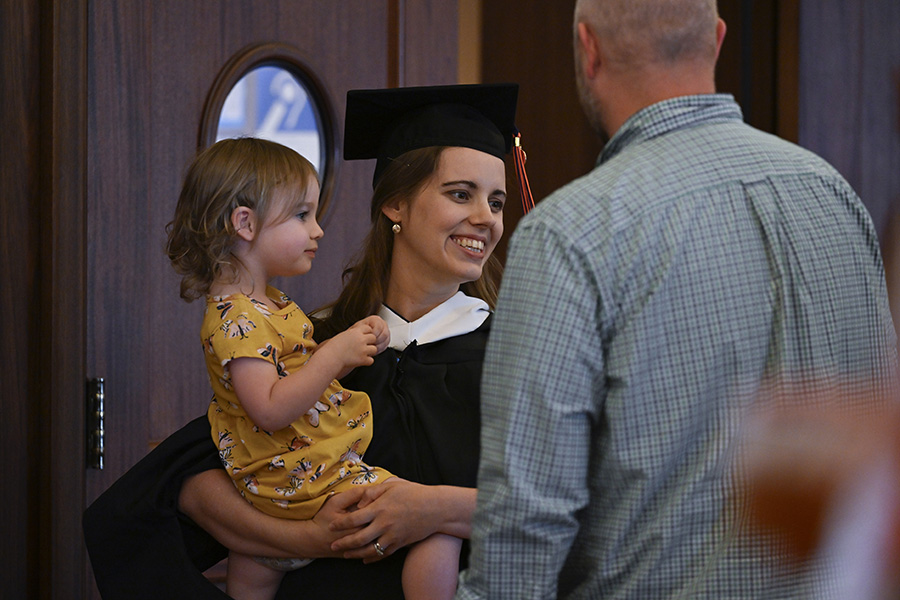
While this cohort is the first class of graduates in Gettysburg’s new M.A. in American history program, this Commencement celebration represents a continuation of Gettysburg’s educational legacy. This legacy includes the awarding of master’s degrees and doctorates during the early 20th century.
Learn more about the Gettysburg College-Gilder Lehrman Master of Arts in American History program at gilderlehrman.org/Gettysburg or at gettysburg.edu/academic-programs/history/programs/ma-american-history.
View the photo gallery from the Inaugural Master’s Commencement.
By Michael Vyskocil
Photos by Abbey Frisco and Jason Minick
Posted: 07/18/23
